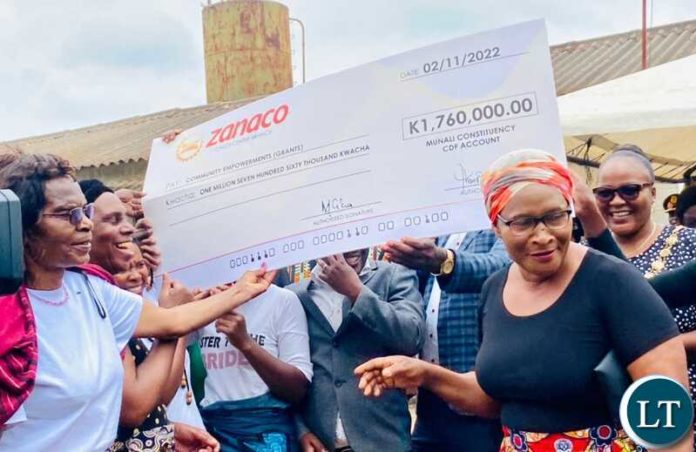Civil Society Demands Full Disclosure in CDF Expenditure Reports
A coalition of civil society organisations (CSOs) has urged the government to strengthen oversight and transparency in the management of the Constituency Development Fund (CDF), warning that without stricter controls, the expanded allocation risks being undermined by mismanagement and corruption.
Speaking during a media briefing in Lusaka, the coalition’s spokesperson, Harriet Chanda, said while the increased CDF allocation has the potential to transform communities, the absence of robust monitoring systems leaves room for abuse. She noted that some constituencies have already reported irregularities in procurement processes, delays in project implementation, and inadequate community consultation.
“The CDF is a powerful tool for decentralised development, but only if it is used for its intended purpose,” Chanda said. “We are concerned that weak oversight mechanisms could allow funds to be diverted from projects that would directly improve the lives of constituents.”
The CSOs are calling for mandatory public disclosure of CDF project plans, budgets, and expenditure reports, as well as independent audits for each constituency. They also want to see stronger participation of local communities in identifying priorities to ensure that funded projects reflect genuine needs rather than political considerations.
Under the current arrangement, each constituency receives a substantial annual allocation intended for infrastructure projects, social services, and economic empowerment initiatives. The government has promoted CDF as a way to deliver development more quickly and directly to communities without the delays often associated with centralised funding.
However, Chanda warned that the effectiveness of the programme depends on the integrity of local leaders and the efficiency of administrative processes. She stressed that cases of delayed or abandoned projects not only waste public resources but also erode public trust in the system.
The coalition has proposed that Parliament enact amendments to the CDF Act to make transparency and community participation mandatory. They further recommended that training programmes be conducted for local officials to improve their capacity in project management, procurement procedures, and financial reporting.
In response to the concerns, Local Government and Rural Development Minister Gary Nkombo assured the public that the government is committed to ensuring accountability in CDF administration. He pointed to recent measures such as the introduction of an electronic monitoring system and the requirement for quarterly progress reports from constituencies.
Nkombo acknowledged that there have been challenges in the rollout of the expanded CDF but maintained that these are being addressed. “We are refining the processes to ensure efficiency, transparency, and maximum impact,” he said.
The debate over CDF management comes as the programme continues to attract attention from both supporters and critics. Proponents argue that it is the most direct way to bring development to communities, while detractors fear it could become a vehicle for political patronage if not tightly regulated.
As the fund’s size and scope continue to grow, stakeholders agree that its long-term success will depend on a combination of strong legal safeguards, vigilant oversight, and active citizen engagement.



What is the point of portraying a 3yr old photo?
CDF is the new dawn legalized kasaka ka ndalama, a slush fund. Previously we had the presidential initiative and such like terms.
Civil society is fast asleep in Zambia. If they were awake they should have been the ones who should have taken up the Public interest issue of the one who is refusing to declare his assets whilst challenging ECLs family to bury in Zambia which he is calling Public interest. Civil society should have by now got an injunction in the Zambian courts restraining him attending burial and probably we could have butried by now. Let him declare his assets – that is a real Public interest issue
Why must CDF be made to buy 156 police vehicles, and sponsor some pupils and students in schools and colleges? After 4 years, government has failed to draw a line what the Fund can and can not do. It’s a hoax. Or it is a wonderful game changer?!?
Zambians can be easily fooled by any politician offering them a temporal bribe. As long as they receive money you are the savior
The only disclosure coming you way will be lies and deceit
Comments are closed.